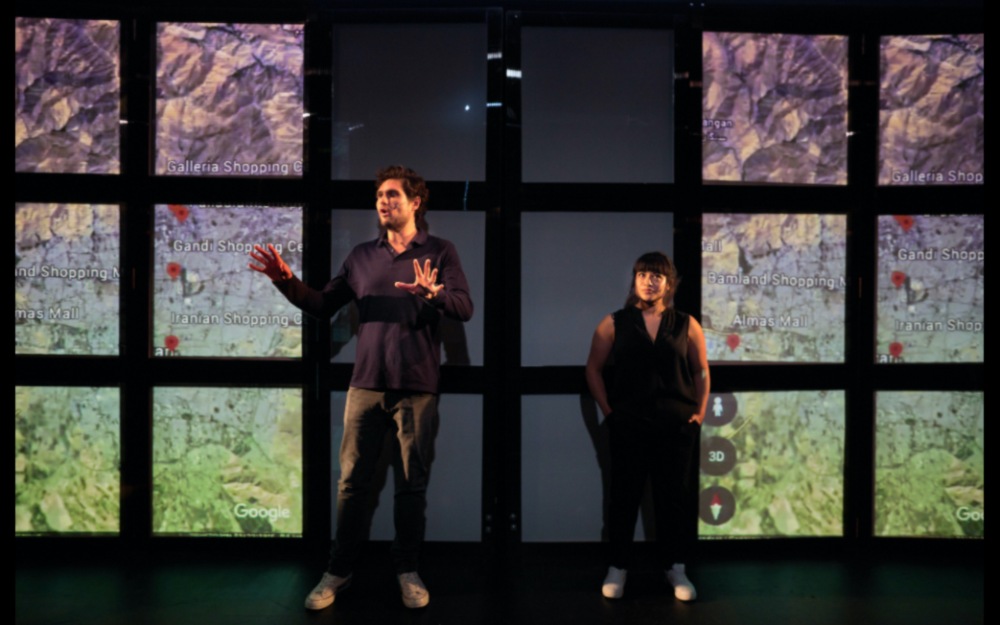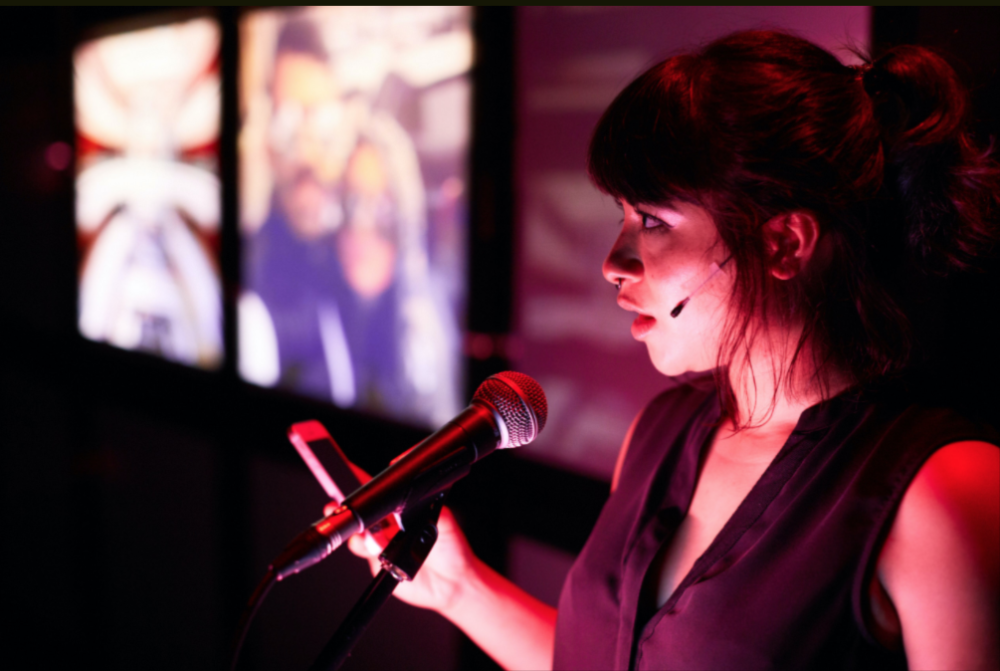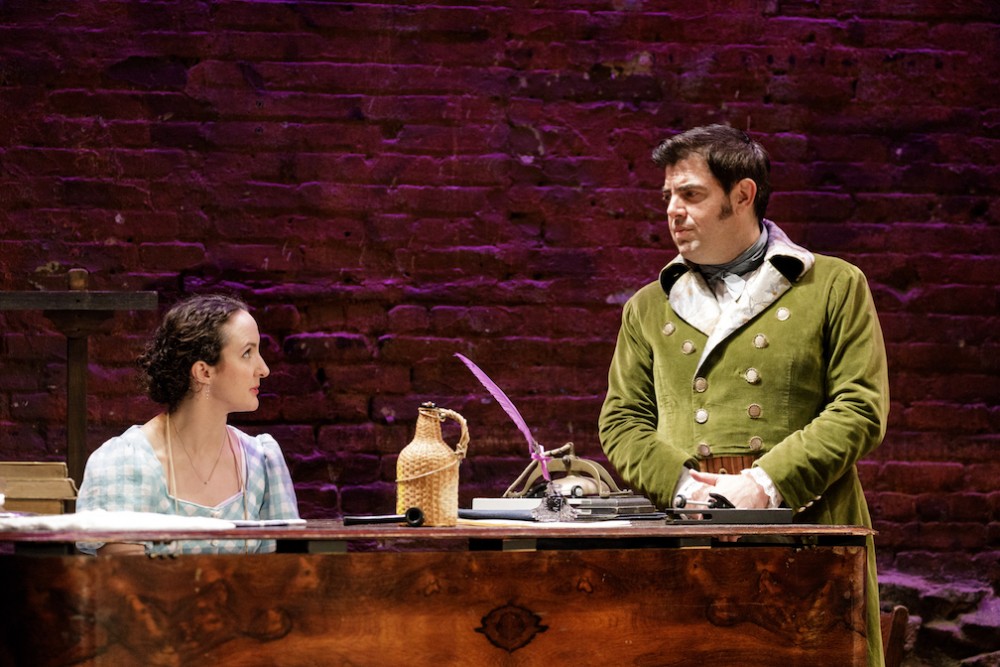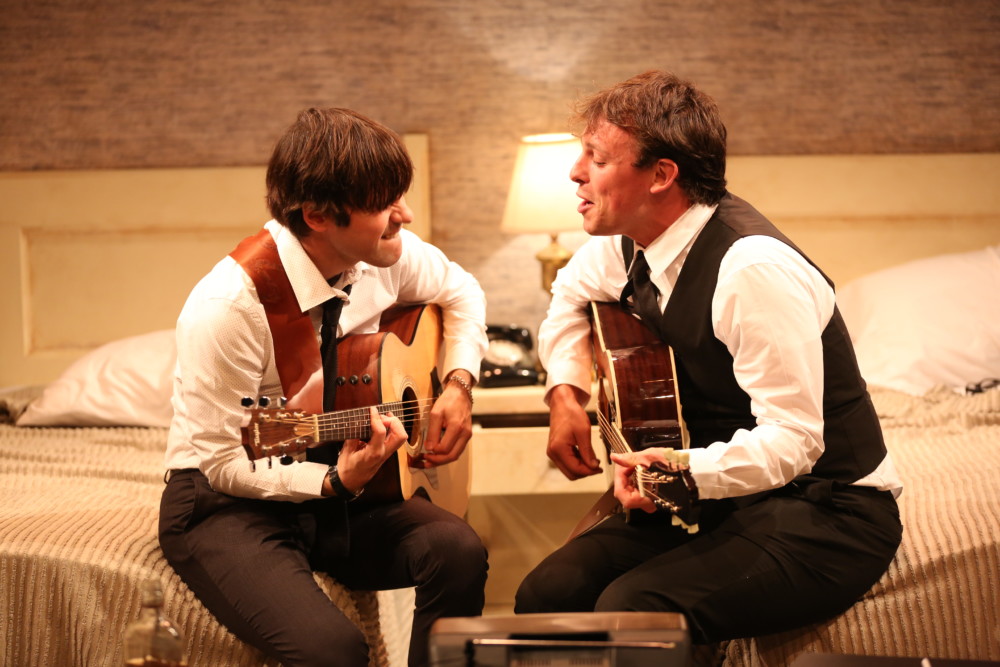A History of Shopping Malls in Tehran
By Carole Di Tosti

Except for economically socialized countries like Sweden, Norway and others, the chasm between the rich and poor is increasing globally. This is particularly felt in Iran where the sanctions by the West and the resulting black-market wealth of the Revolutionary Guard have exacerbated culture clashes between the wealthy, middle class, and lower class.
In Rich Kids: A History of Shopping Malls in Tehran, one of the online offerings of the Public Theater’s Under the Radar Festival 2021, playwright Javaad Alipoor posits a profound historical and philosophical perspective of the dynamics of the Iranian society’s wealth gap through the lens of the past. He does this combining streaming digital theater and a live Instagram feed. The production is being livestreamed through 17 January 2021. Following each performance is a talkback on Zoom.
Winner of the 2019 Scotsman Fringe First Award in its stage version, Alipoor adapted his work for the digital medium. However, the tenets are the same in both versions. Rich Kids is a sardonic work about privilege, who has it and what they do with it. Coupled with privilege comes conspicuous consumption on steroids, fueled by digital technology. But Alipoor relates that this is all behind us because we’re dooming ourselves and our end is nearer than we anticipate. He suggests that this has been the same with every prior great and small civilization on the planet. Look at the Aztecs!
Using intriguing screen images in a kaleidoscope of movement and color as a backdrop, Alipoor narrates how cultures change and implode. Captive to their own lusts and dreams, they jettison their philosophical underpinnings and values that initially brought the society to an apotheosis, then they collapse. Indeed, the fatal flaws of civilizations are buried in our geology after we have impacted, shaped, and destroyed the earth that has fed and nurtured us. If we wanted to learn from our human past, we would have to dig through all the layers of earth and rock. But once uncovered, we still would not be able to decipher what went wrong.
Better perhaps to live in the moment then meditate and reflect about our lives. However, in this scrambling acceleration of time, speeded up by social media, reflection is difficult, for the culture we live in encapsulates and traps us with its immediacy. This is what happens to the two representatives of doom Alipoor chooses to relate to the myth of our time in a car crash that went viral and served as a wakeup call on social media showing that even the rich are mortal.


Theirs was a Cinderella tale that ended badly. Handsome, nouveau riche Mohammad Hossein Rabbani-Shirazi (21) grandson of an Ayatollah, was in a canary yellow Porsche with a beautiful girl from a lower middle-class neighborhood, Parvivash Akbarzadeh. She was 20 and a first-time driver. He was engaged to be married to someone else and she was hanging with him, living the “high-life,” and posting their travels and exploits on Instagram, all a violation of religious norms. Speeding allegedly at 120 miles an hour, whether they raced to the stars or ran from the mores of a life arranged for them, it is not clear.
However, Alipoor comes back to their story again and again. Like layers of earth, it is interposed among Alipoor’s commentary about Iran’s historical past down to its geological structure. Then the narrative poetically expands to the cosmos as all things are somehow related and not related. Then once more we hear about Parvivash and Mohammad’s conspicuous consumption, drinking, dancing all of which is posted in Instagram photos to be glorified or vilified by those who knew them and empathized, and those in Tehran who didn’t and judged them.
In an interesting finality, Alipoor flashes back to the past before the time of the Shah and right after. He traces the history of Mohammad Hossein’s father’s wealth and ancestral poverty and piety. In one generation the poverty and piety is wiped away by money purchased on the backs of those who suffer impoverishment through sanctions against Iran, and corrupt connections.
Alipoor co-narrates with Peyvand Sadeghian in a split-screen and he reads the part of Mohammad as she reads Parivash. Viewing their story in the wide background of history, we see that the controversy these rich kids’ behaviors, Instagram photos and deaths generated, are insignificant. The planet spins and eventually the civilization will die in its own necessity perhaps. Alipoor makes their story in the backdrop of history fascinating.
The work is co-created by Javaad Alipoor and Kirsty Housley. You may get tickets and times to the innovative Rich Kids: A History of Shopping Malls in Tehran at the Public Theater’s Under the Radar Festival 2021. The production ends on 17 January 2021. For tickets click here: https://publictheater.org/productions/season/2021/utr-2021/rich-kids-a-history-of-shopping-malls-in-tehran/
Photos: Peter Didbin





















